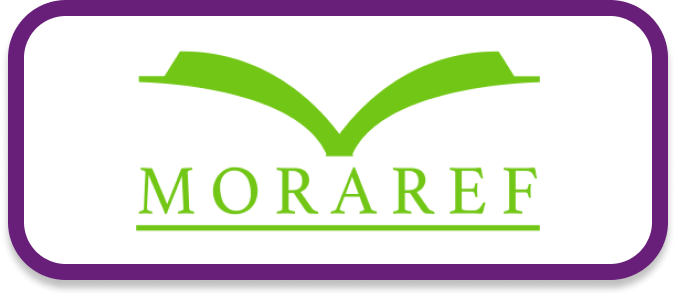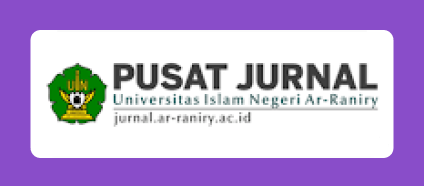PERAN GURU KELAS TERHADAP PROSES PEMBELAJARAN PADA MASA PANDEMI COVID-19 DI SDN 112268 GUNUNG LONCENG LABUHAN BATU UTARA
Abstract
After the determination of the Covid-19 virus as a pandemic, the education system began to look for an innovation for the process of teaching and learning activities. Moreover, the Circular no. 4 of 2020 from the Minister of Education and culture who recommends that all activities in educational institutions must keep a distance and all material delivery will be delivered at their respective homes. This prompted researchers to examine the role of teachers in the learning process during the pandemic at SD Negeri 112268 Gunung Lonceng. The research method uses a qualitative approach by conducting interviews with classroom teachers with a predetermined sample. It turns out that in practice the supporting and inhibiting factors greatly affect online learning (in the network) but are no less important than the role of the teacher. Without a classroom teacher, the learning process will not run well. The role of the classroom teacher is very influential on the educational process at the elementary level. The role of the classroom teacher is very dominant as a motivator, administrator and evaluator. A teacher who has a duty as a classroom teacher must have professional competence so that an effective and efficient learning process can be created and can overcome student problems in learning.
Keywords
Full Text:
PDFReferences
Arikunto. S. 2013. Penelitian Tindakan Kelas. Jakarta: Bumi Aksara
Assingkily, Muhammad Shaleh & Miswar. 2020. “Urgensitas Pendidikan Akhlak Bagi Anak Usia Dasar (Studi Era Darurat Covid-19)” Tazkiya, 9(2). http://jurnaltarbiyah.uinsu.ac.id/index.php/tazkiya/article/view/836.
Assingkily, Muhammad Shaleh. 2021. Penelitian Tindakan Kelas (Meneliti dan Membenahi Pendidikan dari Kelas). Medan: CV. Pusdikra Mitra Jaya.
Fahrina, Aprilia, dkk. 2020. Peran Guru dan Keberlangsungan Pembelajaran di Masa Pandemi Covid-19. Aceh: Syiah Kuala University Press
Gusti, Sri, dkk. 2020. Pembelajaran Daring di Tengah Pandemi Covid-19. Jakarta: Yayasan Kita Menulis.
Hariyadi, Slamet. 2014. “Bertanya, Pemicu Kreativitas dalam Interaksi Belajar” Biosel: Jurnal Penelitian Science dan Pendidikan, 3(2). https://www.jurnal.iainambon.ac.id/index.php/BS/article/view/518.
Indrawan, dkk. 2020. Guru Sebagai Agen Perubahan. Jawa Tengah: IKAPI.
Lefudin. 2017. Belajar dan Pembelajaran dilengkapi dengan Model Pembelajaran, Strategi Pembelajaran dan Metode Pembelajaran. Yogyakarta: Deepublish.
Lubis, Rahmat Rifa’i, dkk. 2020. “Pembelajaran Al-Qur’an Era Covid-19: Tinjauan Metode dan Tujuannya pada Masyarakat di Kutacane Aceh Tenggara” Kuttab: Jurnal Ilmu Pendidikan Islam, 4(2). http://journalfai.unisla.ac.id/index.php/kuttab/article/view/275.
Mardianto. 2020. Psikologi Pendidikan. Medan: Perdana Publishing.
Meleong, Lexy J. 2014. Metodologi Penelitian Kualitatif. Bandung: Remaja Rosdakarya.
Sit., Masganti & Muhammad Shaleh Assingkily. 2020. “Persepsi Guru tentang Social Distancing pada Pendidikan AUD Era New Normal” Jurnal Obsesi: Jurnal Pendidikan Anak Usia Dini, 5(2). https://www.obsesi.or.id/index.php/obsesi/article/view/756.
Suardi, Moh. 2020. Pembelajaran Daring Untuk Pendidikan: Teori dan Penerapan. Jakarta: Yayasan Kita Menulis.
Sugiyono. 2013. Metode Penelitian Pendidikan (Pendekatan Kuantitatif, Kualitatif, R & D). Bandung: Alfabeta.
Syafaruddin, et.al. (2020). “Manajemen Pembelajaran Pendidikan Agama Islam di SDIT Bunayya Pandan Kabupaten Tapanuli Tengah” AULADUNA: Jurnal Pendidikan Dasar Islam, 7 (1). http://repository.uinsu.ac.id/id/eprint/8966.
DOI: http://dx.doi.org/10.22373/pjp.v10i1.10222
Refbacks
- There are currently no refbacks.
Copyright (c) 2021 Dian Alvina, Rora Rizki Wandini, Mirna Yanti Siahaan, Ade Hamidah Siregar, Endang Wahyana Sari

This work is licensed under a Creative Commons Attribution-ShareAlike 4.0 International License.

























